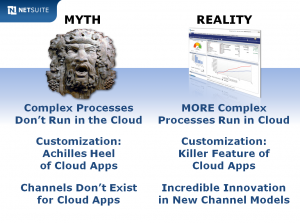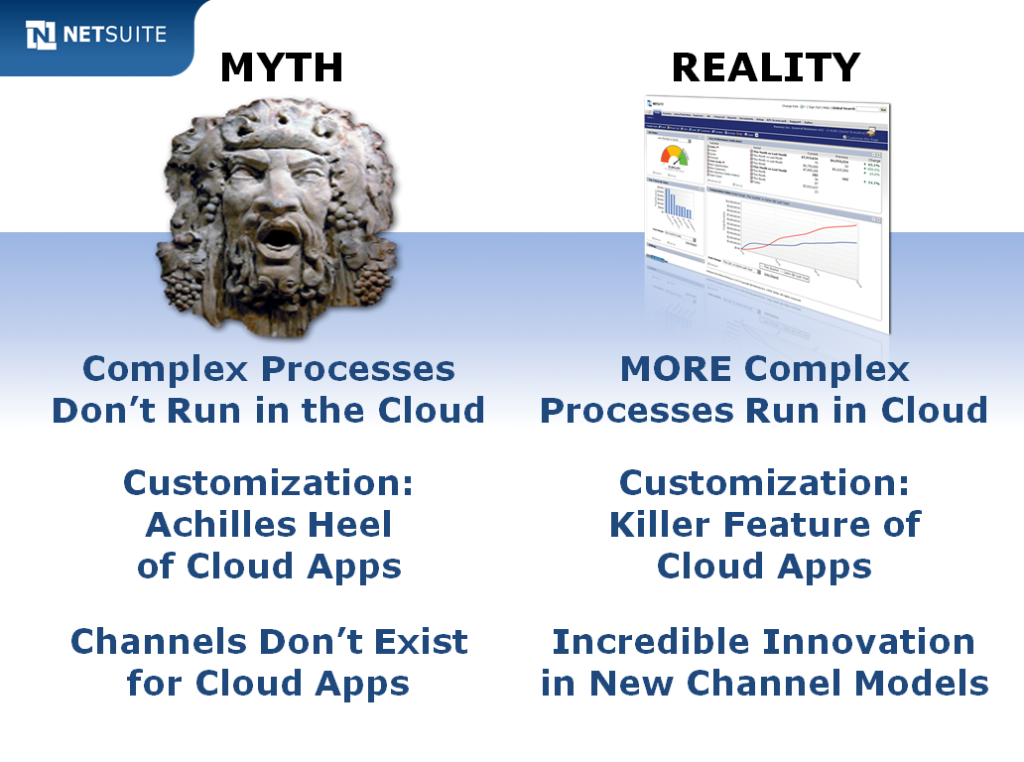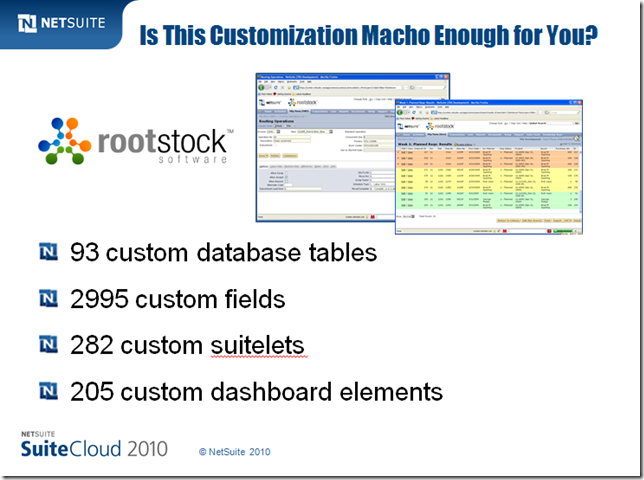Recently I wrote about the evergreen Best-of-breed vs. Integrated All-in-One Suite debate again, arguing:
Call me “old school”, but I also believe in the value of having one tightly integrated system for most business needs, and I believe it’s true not only for large corporations but much smaller businesses. I don’t have CIO’s to back it up, but that’s exactly the point: I am talking about small businesses that don’t have CIO’s at all – in fact they likely don’t even have full time IT stuff ( a good reason for SaaS in the first place), so they clearly lack the bandwidth to deal with integration issues and multiple system providers.
It wasn’t just hypothetical speculation, what really prompted my post ( and hence the reference to CIOs) was a study conducted by Brian Sommer who contacted several large corporate CIOs about SaaS implementations, and found that despite improvements in technology, and easy integration by firms like Boomi, Pervasive ..etc, CIOs still prefer to buy an integrated suite of applications and deal with one vendor for most of their needs. It’s not what we think, it’s what they do – and they are the customers. Says Brian:
But, customers will do what customers want to do.
Amen. But my post attracted a detailed comment from a PR professional (a fact that took a little digging to discover):
… the Suite approach requires the business to make compromises in areas of the business, and only works if you can run your whole business on that one suite – as soon as you need some other specialist system, or acquire another operation that you need to integrate, you’re in trouble because Suites, by definition, are not designed to make integration easy…
…Force.com essentially brings cloud apps together as a Suite by offering exactly the combination of tight integration, common interface and flexibility. Many businesses can already find everything they need on the platform, even the last critical element required for a serious business system: enterprise-class finance 😉 Many companies, especially smaller ones, don’t need a full ERP suite. They need a handful of critical applications that can grow with them.
Wow… where do I even start? Perhaps by the only statement I can agree with:
Many companies, especially smaller ones, don’t need a full ERP suite. They need a handful of critical applications that can grow with them.
Yes, of course I agree. In fact I am a small business myself, and guess what, not only I don’t need ERP, I don’t even need or use a CRM system, or one for business accounting. The only lightweight business system I use is invoicing (happens to be Zoho Invoice), but frankly, I could get away without it. Yes, some small businesses will want Accounting, and Accounting only, others will need CRM and nothing else – there are many good choices for them. And yes, FinancialForce.com (which the commenter represents) is great, and we’ve given it ample coverage @ CloudAve.
But that’s where reality ends, and plain old FUD begins. There’s nothing inherent in the “Suite approach” that would prevent customization, integration with additional systems, extension by third party apps. In fact the key difference between an integrated Suite or discrete point applications is just how much of the core business they cover natively before add-ons are required.
And here’s the ultimate irony: I was reading these “ex-cathedra” statements (that’s nicer words for BS) while sitting at NetSuite’s SuiteCloud conference, that was all about working with development partners, releasing a new version of SuiteCloud, the app development and integration platform along with SuiteFlow, a graphical modeling and customization tool, and a bunch of other announcements all geared to making and maintaining a thriving partner ecosystem, that builds on the core NetSuite functionality and delivers additional value to customers.
In fact the evening before the conference, CEO Zach Nelson spent an hour busting industry myths. Now look at the slide above: he did not talk about NetSuite specifically, he was advocating Cloud Computing / SaaS in general. That’s the somewhat usual formula: myth spread by defenders of the “old model” busted by the innovators – who would have expected the old-time FUD served up by a PR flak for another SaaS provider… 🙁
At the conference itself I saw several customers presentations, like that of Campus Villages which replaced 38 instances of MYOB + Intuit MRI with NetSuite OneWorld, including extensions like Nolan Fixed Assets and Electronic Payments, Celigo Smartclient, and are currently evaluating Adaptive Planning. Those are functions not provided by NetSuite, so guess what – they add third party apps, just like they would to Coda or any other system.
The key criteria for any software company trying to penetrate the SMB market will be vertical industry epxerience, and NetSuite has clearly stated their industry experience is Software and Services – everything else is open to the ecosystem. Case in point is manufacturing:
Suites are not customizable? Just look at Rootstock, a third-party developer house that created an entire MRP system on the SuiteCloud platform. If that’s not living proof of the system’s expandability, then I don’t know what is…
A key difference between the Force.com / Appexchange and NetSuite / SuiteCloud approach is that the former facilitates the creation of any product / utility that you can pick up from a marketplace, while programs developed on SuiteCloude all tie into the NetSuite system very closely – not only on the data but also on the UI level – i.e. the additional business functionality becomes available within the NetSuite UI. In other words they run so smoothly, the fact that parts of the system were written by a 3rd party is hardly transparent to the end user – which is just the way it should be.
So in the end, there is no hard rule that says Suites are inflexible, non-expandable: there only well-written and poorly written Suites, just like well-written and poorly-written point applications. There will be businesses who only need a few point apps, and should not think of a Suite, and others who will benefit from the All-in-One approach. It’s their choice. What they need is honest information, not FUD.
(Cross-posted @ CloudAve)





Recent Comments